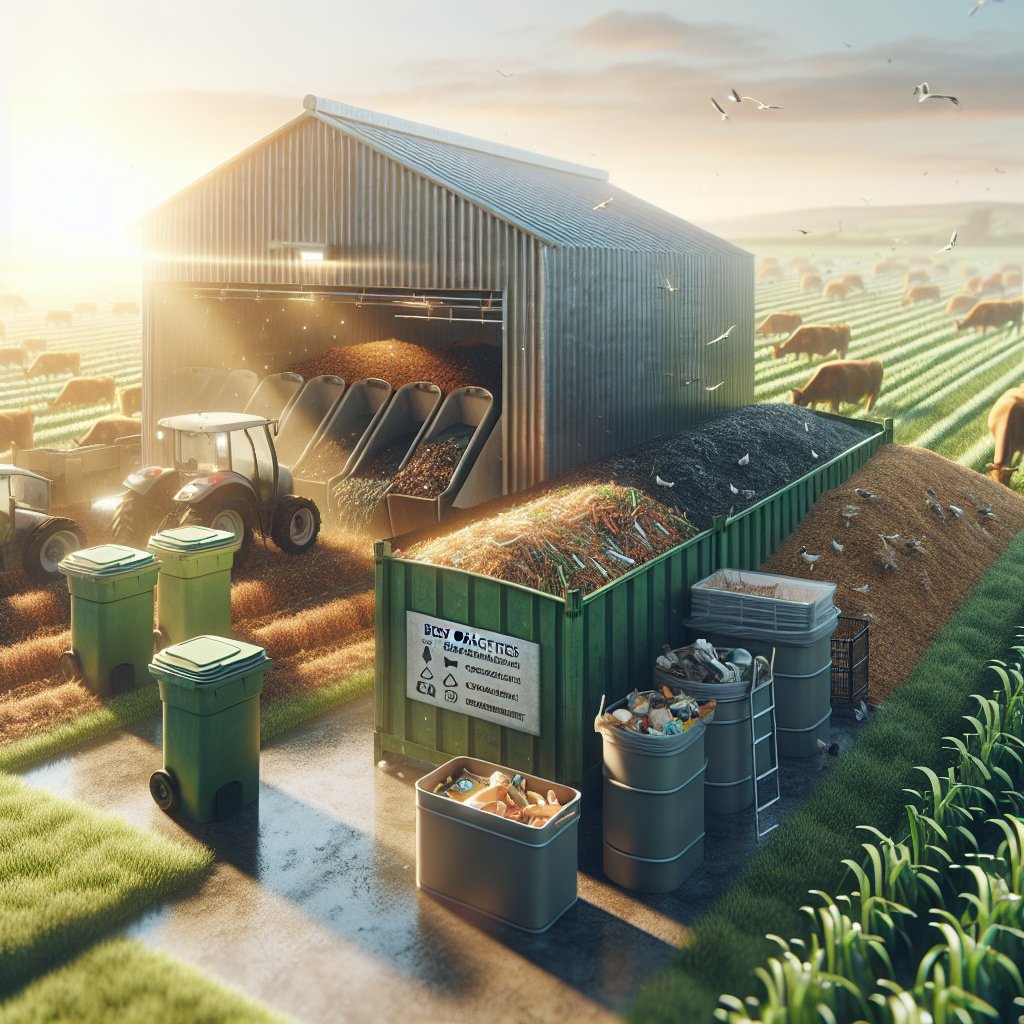
Efficient management of farm waste is a critical aspect of sustainable agriculture, ensuring that farming practices do not harm the environment while maximizing resource use. As the global population continues to grow, the demand for food production increases, making it essential for farmers to adopt best practices in waste management. This article explores various strategies and techniques that can be employed to manage farm waste effectively, focusing on both environmental and economic benefits.
Understanding Farm Waste
Farm waste encompasses a wide range of materials, including crop residues, animal manure, and other organic and inorganic materials generated during agricultural activities. Proper management of these wastes is crucial to prevent environmental pollution, enhance soil fertility, and improve farm productivity. Understanding the types and sources of farm waste is the first step in developing effective management strategies.
Types of Farm Waste
Farm waste can be broadly categorized into organic and inorganic waste. Organic waste includes materials such as crop residues, animal manure, and food processing by-products. These materials are biodegradable and can be recycled into valuable resources like compost or biogas. Inorganic waste, on the other hand, includes plastics, metals, and chemicals used in farming operations. These materials require careful handling and disposal to prevent environmental contamination.
Sources of Farm Waste
The primary sources of farm waste are crop production, livestock farming, and food processing. Crop production generates waste in the form of straw, husks, and other plant residues. Livestock farming produces significant amounts of manure and bedding materials, while food processing generates waste from cleaning, peeling, and packaging operations. Each of these sources requires specific management practices to minimize waste and maximize resource recovery.
Strategies for Efficient Farm Waste Management
Implementing effective farm waste management strategies involves a combination of reducing waste generation, reusing materials, and recycling waste into valuable products. These strategies not only help in minimizing environmental impact but also contribute to the economic sustainability of farming operations.
Waste Reduction
Reducing waste generation is the most effective way to manage farm waste. This can be achieved through improved farming practices, such as precision agriculture, which optimizes the use of inputs like water, fertilizers, and pesticides. By using resources more efficiently, farmers can reduce the amount of waste produced and lower their operational costs.
Reuse and Recycling
Reusing and recycling farm waste can transform potential pollutants into valuable resources. For example, crop residues can be used as animal feed or bedding, while animal manure can be composted to produce nutrient-rich soil amendments. Recycling inorganic waste, such as plastics and metals, involves collecting and processing these materials for reuse in agricultural or industrial applications.
Composting
Composting is a natural process that converts organic waste into a stable, nutrient-rich product that can be used to improve soil fertility. By composting farm waste, farmers can reduce the volume of waste sent to landfills and enhance the health of their soils. Composting also helps in reducing greenhouse gas emissions by preventing the anaerobic decomposition of organic waste.
Biogas Production
Biogas production is an effective way to manage organic farm waste while generating renewable energy. Anaerobic digestion of animal manure and crop residues produces biogas, which can be used for heating, electricity generation, or as a vehicle fuel. The process also produces digestate, a nutrient-rich by-product that can be used as a fertilizer.
Environmental and Economic Benefits
Efficient farm waste management offers numerous environmental and economic benefits. By adopting best practices, farmers can reduce their environmental footprint, improve soil health, and increase their profitability.
Environmental Benefits
Proper management of farm waste helps in reducing pollution, conserving natural resources, and mitigating climate change. By recycling organic waste into compost or biogas, farmers can reduce the need for chemical fertilizers and fossil fuels, leading to lower greenhouse gas emissions and improved air and water quality.
Economic Benefits
Efficient waste management can lead to significant cost savings for farmers. By reducing waste generation and recycling materials, farmers can lower their input costs and increase their revenue from the sale of value-added products like compost and biogas. Additionally, improved soil health from the use of organic amendments can lead to higher crop yields and better quality produce.
Challenges and Future Directions
Despite the benefits, there are several challenges associated with farm waste management. These include the lack of infrastructure, limited access to technology, and insufficient knowledge among farmers. Addressing these challenges requires concerted efforts from governments, research institutions, and the agricultural industry.
Infrastructure and Technology
Developing the necessary infrastructure and technology is crucial for effective farm waste management. This includes facilities for composting, biogas production, and recycling, as well as the development of innovative technologies that can process waste more efficiently. Investment in research and development is essential to drive innovation and make these technologies accessible to farmers.
Education and Training
Educating and training farmers on best practices for waste management is vital for the successful implementation of these strategies. Extension services, workshops, and training programs can help farmers understand the benefits of efficient waste management and equip them with the skills needed to adopt new technologies and practices.
In conclusion, managing farm waste efficiently is a key component of sustainable agriculture. By adopting best practices, farmers can reduce their environmental impact, improve soil health, and enhance their economic viability. While challenges remain, continued investment in infrastructure, technology, and education will pave the way for more sustainable and efficient farming practices in the future.

